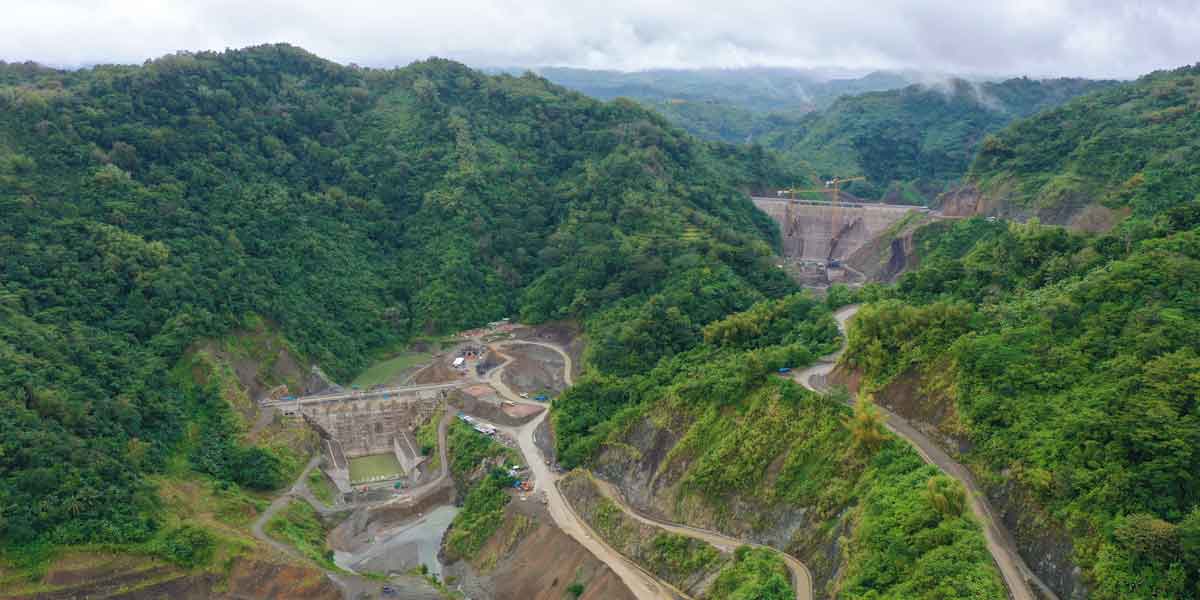By Alex P. Vidal
“At the end of the day, the goals are simple: safety and security.”— Jodi Rell
FILIPINO parents have the moral obligation to prioritize the safety of their kids now that no less than the United Nations (UN) has expressed alarm massive heatwaves across East Asia and the Pacific could place millions of children at risk.
UN’s warning came as 5,844 out of 47,678 public schools nationwide suspended onsite classes April 11 due to extreme heat aggravated by the El Niño phenomenon.
All regions in the country except for Caraga (Region 13) have reportedly recorded class suspensions, with schools opting to shift to alternative delivery mode (ADM) of learning such as online classes and use of modules, according to data from the Department of Education (DepEd).
DepEd data showed Central Luzon has the highest record of schools suspending onsite classes at 1,124, followed by Central Visayas, 792; Soccsksargen, 678; Bicol region, 634 schools; Zamboanga peninsula, 610; and Western Visayas, 536.
UN has called for action to protect vulnerable people from the soaring temperatures even as global monitors warned that 2024 is shaping up to be the hottest year on record, marked by climate extremes and rising greenhouse gas emissions.
According to the UNICEF report, children are more at risk than adults as they are less able to regulate their body temperature.
“Children are more vulnerable than adults to the effects of climate change, and excess heat is a potentially lethal threat to them,” said Debora Comini, director of UNICEF Regional Office for East Asia and the Pacific.
The report said heatwaves and high humidity levels — commonly experienced in the region — can have a deadly effect as the heat will “hinder the body’s natural cooling mechanisms.”
“We must be on high alert this summer to protect children and vulnerable communities from worsening heatwaves and other climate shocks,” Comini suggested.
-o0o-
A report from the United States Department of State stated that during the trilateral leaders’ summit April 11, the leaders of the United States, the Philippines, and Japan announced the intent to develop the Luzon Economic Corridor as the latest economic corridor of the G7 Partnership for Global Infrastructure and Investment (PGI) and the first in the Indo-Pacific region.
The State Department announced it would drive and coordinate implementation of Luzon Corridor through the Office of the Special Presidential Coordinator for PGI.
“This work is also a demonstration of our commitment to Indo-Pacific Economic Framework for Prosperity (IPEF) partners as a key deliverable under the PGI IPEF Investment Accelerator that aims to scale high-standard investments, create more resilient economies, and drive long-term sustainable development,” announced the State Department.
The Luzon Economic Corridor will reportedly support connectivity between Subic Bay, Clark, Manila and Batangas in the Philippines.
The State Department said together, the United States, the Philippines, and Japan will accelerate coordinated investments in high-impact infrastructure projects, including rail; ports modernization; clean energy and semiconductor supply chains and deployments; and agribusiness to further connect and drive economic growth in each hub.
This approach will reportedly make an outsized impact on critical industries, such as semiconductors, where reducing logistics and energy costs coupled with a favorable policy and regulatory environment can propel further growth.
PGI investments in critical infrastructure will further spur this industry and complement the U.S. government’s ongoing collaboration with the Philippines to grow and diversify the global semiconductor industry, stressed the State Department.
PGI investments will also improve food security in the Philippines by connecting farmers to market through improved logistics and cold chain storage infrastructure, it added.
“The announcement of the Luzon Economic Corridor follows the Secretary’s visit to Manila last month and the joint desire of the United States, the Philippines, and Japan to elevate our economic initiatives as a central element of our robust strategic partnership. The United States will also seek to partner with multilateral development banks and the private sector to deploy capital and development and finance tools to support infrastructure projects across the Corridor,” the State Department revealed.
In order to begin implementation of the Trilateral Leaders’ commitment on developing the Luzon Economic Corridor, the United States, the Philippines, and Japan intend to hold a trilateral event promoting investment in the Corridor on the margins of the Indo-Pacific Business Forum (IPBF) in Manila in May—the premier U.S. commercial event in the region.
The trilateral partners will also create a Steering Committee to drive progress of infrastructure development and investment along the Corridor, according to the State Department.
-o0o-
HUMAN SEXUALITY. Sex education is a broad term used to describe education about human sexual anatomy, sexual reproduction, sexual intercourse, reproductive health, emotional relations, reproductive rights and responsibilities, abstinence, contraception, and other aspects of human sexual behavior. Common avenues for sex education are parents or caregivers, school programs, and public health campaigns.
TECHNIQUES. The Kama Sutra details techniques on 10 types of kisses, 64 different caresses, eight variations on oral sex, and 84 positions for intercourse.
YOUNG GENERAL. George Washington was only 18 when he was appointed general of the Continental Army and was the only U.S. president who didn’t live in the White House.
ANTI-HOMOSEXUALS. The Polish president who perished in a plane crash in Russia in 2010 was a staunch enemy of homosexuals. When he was alive, he sought to banish all homosexuals in Poland but failed because some of the clergymen closed to him were homosexuals.
FREEDOM OF CONSCIENCE. God gave us the ingredients for our daily bread, but He expects us to do the baking. Whatever we bake this day, may it please the one we serve.
(The author, who is now based in New York City, used to be the editor of two daily newspapers in Iloilo.—Ed)






















